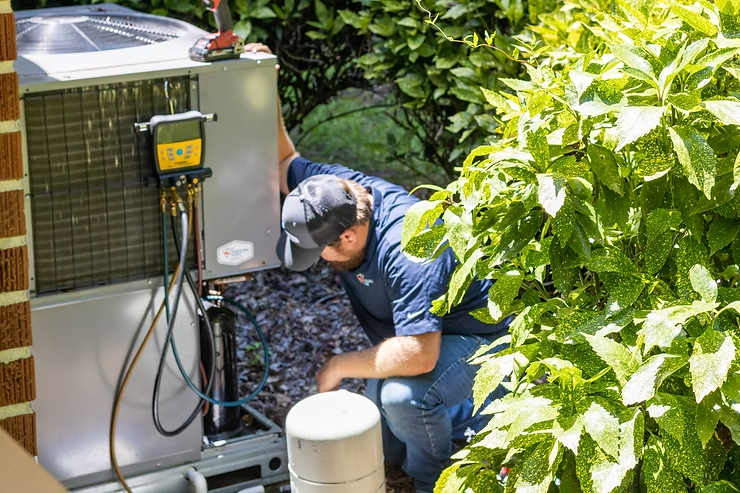Introduction
As the HVAC industry moves towards more environmentally friendly practices, a significant change is on the horizon. The U.S. government has mandated a switch from the widely-used R-410A refrigerant to new A2L refrigerants, such as R-32 and R-454B, starting in 2025. This change is part of a broader effort to reduce emissions and combat climate change. But what does this mean for homeowners and businesses? Let’s break down the key details, including why R-410A is still a reliable choice and how the A2L refrigerant switch will impact HVAC costs.

Understanding the Switch: Why R-410A is Being Phased Out
R-410A has been a mainstay in the HVAC industry for many years due to its non-ozone-depleting properties and high efficiency. However, its high global warming potential (GWP) of 2,088 has led to its phase-out as part of government regulations aimed at reducing greenhouse gas emissions. The Environmental Protection Agency (EPA) has set new standards that require all new HVAC systems to use A2L refrigerants with a lower GWP starting in 2025.
Why R-410A is Still a Great Option
Despite the impending phase-out, R-410A remains a highly reliable and cost-effective refrigerant. Its safety, efficiency, and proven track record make it an excellent choice for those looking to upgrade their HVAC systems now. In fact, systems using R-410A are currently available at a lower cost compared to the new A2L systems that will soon dominate the market.
Cost Implications of the Transition to A2L Refrigerants
While the new A2L refrigerants are better for the environment, they come with a higher price tag. Due to their mildly flammable nature, A2L refrigerants require additional safety features, leading to an estimated 20-25% increase in refrigerant costs. Additionally, HVAC systems designed to accommodate these new refrigerants are expected to be 20-30% more expensive than their R-410A counterparts.
Although A2L systems are marketed as environmentally beneficial, the initial costs are significantly higher. For many homeowners and businesses, the cost ratio of sticking with an R-410A system during this transition period may be more favorable, especially when considering the proven performance and safety of R-410A.
How This Affects You: Key Considerations
• For Current System Owners: If your HVAC system currently uses R-410A, you can continue to use it without concern. However, as the availability of R-410A diminishes, maintenance and repair costs may increase. Planning for a future upgrade to a new system that uses A2L refrigerants is advisable, but not immediately necessary.
• Purchasing New Systems: If you’re in the market for a new HVAC system, now is an ideal time to purchase a reliable R-410A system. These systems offer excellent performance at a lower upfront cost compared to the new A2L systems, making them a cost-effective choice in the short term.
Act Now to Lock in Your Savings!
With the phase-out of R-410A fast approaching, this is a limited-time opportunity to save on HVAC systems that use this trusted refrigerant. Don’t miss out on the chance to upgrade your system at a more affordable price while stocks last. Contact us today to schedule an estimate and secure your savings before the transition to A2L refrigerants takes full effect.
Conclusion
The transition to A2L refrigerants is a significant change in the HVAC industry, driven by government regulations aimed at reducing environmental impact. While these new refrigerants offer long-term benefits, the higher costs associated with them make R-410A systems an attractive option for those looking to upgrade now. At Carolina HVAC, we’re here to help you navigate these changes and ensure you have the best system for your needs. Reach out to us today to discuss your options and take advantage of the savings available with R-410A systems.